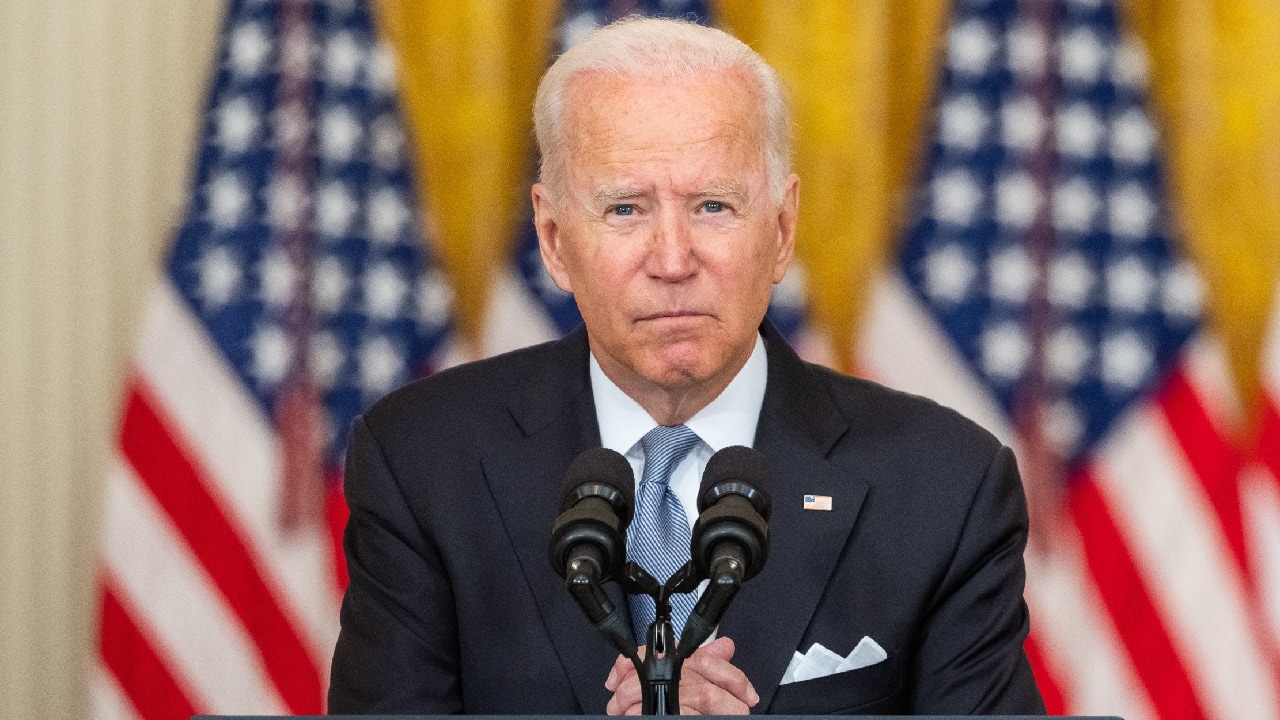Are Joe Biden’s policies creating the conditions for a recession? Today’s very strong labor market numbers do not bode well for President Biden’s prospects in this November’s mid-term elections.
By confirming Federal Reserve Chair Jerome Powell’s characterization of the labor market as “tight to an unhealthy degree”, today’s employment numbers leave the Fed with little option but to slam on the monetary policy brakes to get the inflation genie back into the bottle. That in turn risks precipitating an economic recession in the run-up to November’s election.
The excessive strength in the labor market needs to be seen in the context of today’s high inflation rate. It is not only that consumer price inflation has risen to almost 8 percent or to a forty-year high. It is also that Russia’s Ukrainian invasion and China’s Covid-induced lockdown of a number of major cities threaten to send US inflation meaningfully higher in the months immediately ahead.
The Russian invasion might do so by having sent international oil and food prices through the roof. At the same time, the Chinese Covid lockdown now threatens to delay the repair of disrupted supply chains and to increase international shipping costs.
With inflation already running substantially above its 2 percent inflation target, the last thing that the Fed needs is an excessively tight labor market. Yet that is what the most recent labor market numbers are now suggesting that we have. At 3.6 percent, unemployment is now at close to its pre-pandemic lows, while job openings exceed those seeking employment by a record amount. Equally troubling is the fact that hourly wage earnings are now increasing at a 5.6 percent annual clip.
Already before today’s numbers, Mr. Powell conceded that inflation was proving to be more permanent a phenomenon than the Fed had anticipated. He also suggested that the Fed might need to start hiking interest rates in 50 basis point increments rather than the more normal 25 basis point increases in order to regain control over inflation. Today’s strong labor market numbers would seem to leave the Fed with little option but to start doing so at its next scheduled policy meeting on May 15-16.
Signs of the Recession to Come?
In the best of circumstances, the Fed’s task of slaying the inflation beast without producing a hard economic landing would not be easy. However, it would seem to be particularly difficult today at a time when equity valuations are at nosebleed levels experienced only once before in the last one hundred years and when housing prices are higher than they were before the 2006 housing market bust even in inflation-adjusted terms. This has raised the real risk that in slamming on the monetary policy brakes, the Fed might burst the current equity and housing market bubble with untoward economic consequences.
Following today’s strong labor market numbers announcement, 2-year Treasury bond yields rose above 10-year Treasury bond yields on the expectation that the Fed would soon have to start increasing interest rates in earnest. This has to be of concern to Mr. Biden for his November election prospects since the so-called inversion of the yield curve has been among the best economic recession predictors. Indeed, since 1955, every time that the yield curve inverted, a recession followed within six to twenty-four months.
Here Comes the Recession?
The moral of the story would seem to be that if one wants to win elections, one needs to get the timing of one’s economic policies right. By having rushed through Congress his excessively large $1.9 trillion American Rescue Plan in March 2021, Mr. Biden did succeed in producing a strong economic boom last year. However, he also managed to help drive inflation up to a forty-year high. That now seems to be setting us up for a hard economic landing on the eve of the November elections.
Desmond Lachman joined AEI after serving as a managing director and chief emerging market economic strategist at Salomon Smith Barney. He previously served as deputy director in the International Monetary Fund’s (IMF) Policy Development and Review Department and was active in staff formulation of IMF policies. Mr. Lachman has written extensively on the global economic crisis, the U.S. housing market bust, the U.S. dollar, and the strains in the euro area. At AEI, Mr. Lachman is focused on the global macroeconomy, global currency issues, and the multilateral lending agencies.

